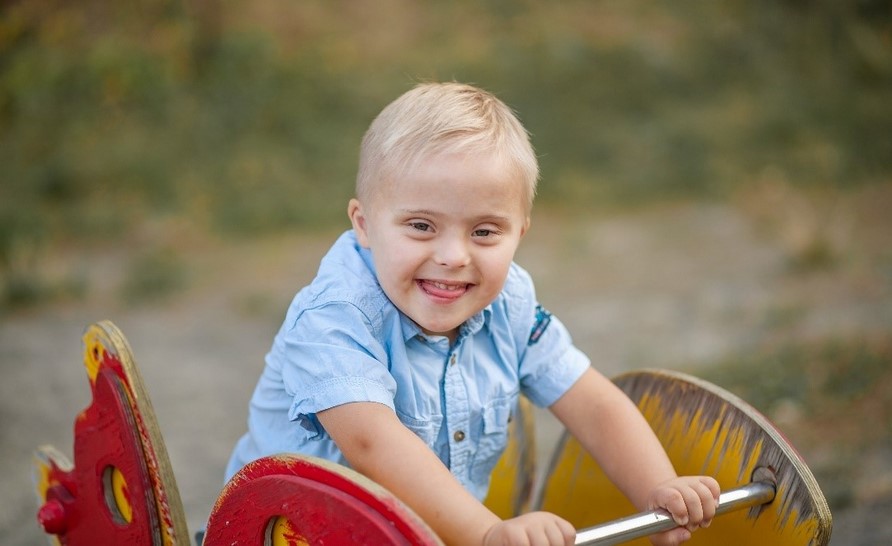The Importance of Early Intervention in Paediatric Physiotherapy
Early intervention physiotherapy plays a vital role in supporting children who have physical challenges related to a disability or developmental delay. Paediatric physiotherapy is a specific area of physiotherapy that involves working with children from infancy to adolescence. Starting physiotherapy as early as possible can give your child the best chance of reaching their potential.
Understanding early intervention in paediatric physiotherapy
Early intervention in paediatric physiotherapy is about identifying and addressing physical or developmental challenges in children as early as possible. This can lead to better outcomes compared to interventions that start later.
Early intervention physiotherapy aims to start treatment and support at the earliest signs of concern to optimise development, prevent long-term physical limitations, and enhance a child’s quality of life.
Under the NDIS, early intervention for children with developmental delay or disability is known as the NDIS early childhood approach. This approach recognises that a child’s early years are crucial for learning and development later in life. It aims to build the capacity of the child and their family to support inclusion in everyday and community activities, such as those in the home, school, and community-based groups.
From July 1, 2023, the early childhood approach changed to include children younger than nine. Children younger than six with signs of developmental concerns do not need a diagnosis to access support through the NDIS early childhood approach.
Key components of early intervention
Important aspects of early intervention physiotherapy include:
1. Early identification
The early intervention process starts when a child shows signs that they are experiencing physical challenges or signs of developmental delay. Signs that could suggest your child might benefit from early intervention physiotherapy include:
- delays reaching movement milestones such as crawling and walking
- challenges with gross motor skills, such as running or kicking a ball
- fine motor skill problems, such as difficulty holding a pencil or using scissors
- difficulty keeping up with their peers
- posture, balance, muscle tone or coordination problems.
2. Assessment
Once concerns are identified, your paediatric physiotherapist will do a comprehensive assessment. This involves finding out more about your child’s medical history, development, and your concerns. Your NDIS physio will also assess your child’s physical function, looking at things like their mobility, muscle strength, flexibility, balance and posture. They will also help you establish therapy goals.
Physiotherapy assessment involves looking at your child’s movement and physical function.
3. Tailored treatment
Based on the assessment findings, your physiotherapist will develop a personalised treatment plan for your child. This will include therapeutic support to address your child’s needs and goals. Common early intervention physiotherapy strategies include:
- play-based exercises
- stretching routines
- movement drills
- prescription of assistive devices (such as mobility aids)
- advice about seating and positioning.
4. Family-centred approach
Early intervention recognises that a child’s family or caregivers know their child best and play an essential role in their development. Early childhood intervention should actively involve the family. It’s important that parents and caregivers understand the treatment plan and receive training to assist with the therapy program. As much as possible, therapy should fit in with your family’s everyday life.
5. Strength-based methods
Early intervention physiotherapy takes a strengths-based approach. This means it focuses on your child’s and family’s abilities, knowledge and capacities. It recognises your resilience and helps you discover and build on your strengths.
6. Regular monitoring
Your physio will check your child’s progress regularly. They can update your treatment plan as needed to meet your child’s changing needs and goals.
How early intervention in paediatric physiotherapy supports positive outcomes
Early intervention aims to give children the best possible start in life. In paediatric physiotherapy, early intervention can benefit children in various ways.
Optimising brain development
Children’s brains are rapidly growing and developing. They are highly adaptable and responsive to new experiences and learning. Early intervention takes advantage of this critical phase of brain development to stimulate healthy growth of nerve pathways.
Reaching developmental milestones
Achieving developmental milestones such as rolling, sitting, crawling, standing and walking help children gain independence and the ability to navigate their environment. Early intervention physiotherapy supports the achievement of these milestones.
Optimising physical development
Enhanced function and independence
Preventing secondary complications and disability
Improved quality of life
How early intervention physiotherapy can improve outcomes for children
Paediatric physiotherapists use a range of therapeutic supports and strategies to help children reach their goals. Often, interventions will be play-based and fun to enhance motivation and engagement with therapy. Paediatric early intervention sessions will be tailored to your child’s functional capacity, needs and goals. Common therapeutic supports include:
- Motor skills training – a program of specific exercises and functional movement training can help your child develop motor skills such as crawling, walking, and fine motor control. For example, your child might practise rolling on a therapy ball to encourage head and trunk control. Or they might do fun tasks that involve standing up and sitting down to improve their ability to get on and off chair.
- Balance training – balance problems are common in children with disability or developmental delay. Your physio might prescribe exercises to encourage better balance, such as practise standing on one leg while kicking a ball or holding their balance while standing on different surfaces.
Physiotherapy early intervention supports children to participate in everyday activities.
- Posture correction – postural issues can impact a child’s ability to participate in everyday activities. For example, excessive trunk or neck flexion (forward bending) may make it difficult for them to sit up and participate in class. Early intervention physiotherapy might involve techniques to improve posture, such as stretches, exercises, or positioning. Improved posture can also help prevent musculoskeletal issues in the future.
- Muscle strength and endurance training – low muscle tone and muscle weakness are also common in children with disability or developmental delay. This can affect their balance, functional capacity, and ability to participate in sports and leisure activities. Specific exercises can help to improve muscle strength. For example, your child might do arm, leg or trunk movements using resistance bands, therapy balls or their body weight.
- Prescription of assistive devices – assistive technologies can support children’s functional capacity, independence and participation. Your paediatric physio might recommend devices such as braces, splints, and mobility aids. They will also teach your child and family how to use and maintain the device.
- Pain management – children with a physical disability can have an increased risk of experiencing pain or discomfort. Physiotherapy might involve techniques to manage pain, including exercises and stretches to promote healthy movement and ease stiffness.
- Training support people – to be most effective, early intervention therapies need to be delivered consistently. Involvement of formal and informal support people can make a big difference to therapy outcomes. Your paediatric physio will train your family and other caregivers to participate in your child’s care.
Early intervention physiotherapy with Active Ability
If your child has a disability or developmental delay, our NDIS registered paediatric physiotherapists offer early intervention therapy. We focus on supporting children living with autism, neurological conditions, and intellectual disabilities.
Our team use fun, evidence-based strategies to help children stay motivated with therapy and achieve their goals. To help ensure therapy fits around your family life, we can visit you at home, childcare, school, or another convenient local facility.
We also aim to make therapy accessible and cost-effective, so we do not charge for travel or have a waiting list. Active Ability also has a team of paediatric dietitians available to provide support for managing nutritional or feeding issues.
Find out more about how we might be able to support your child and family by contacting our friendly team on (02) 9161 5887, hello@activeability.com.au or via our contact form.
Get in touch
hidden
Follow Us


